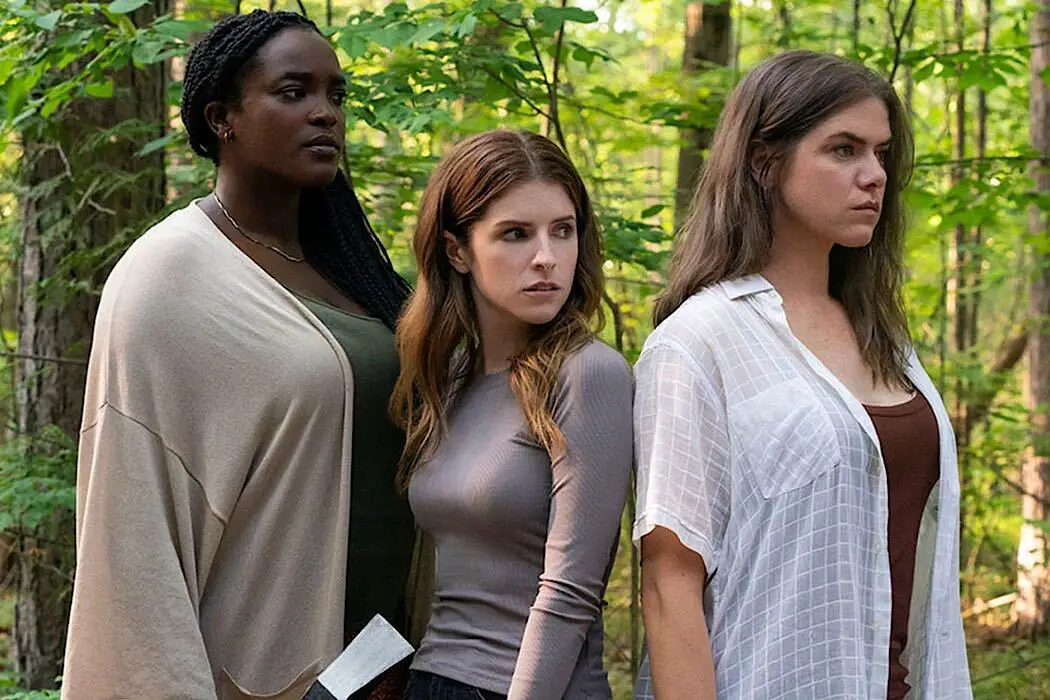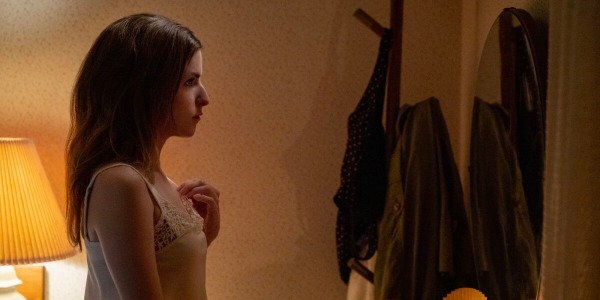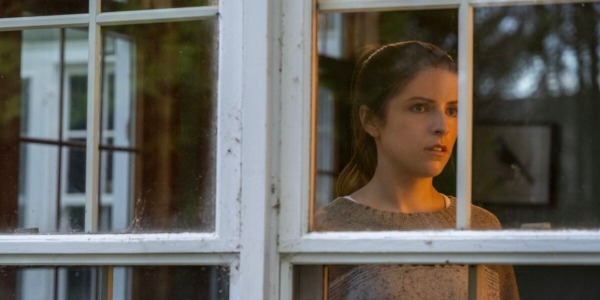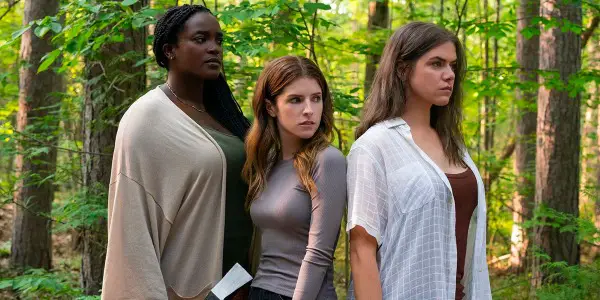ALICE, DARLING: All Too Real

Alex is a film addict, TV aficionado, and book lover.…
Specificity is one of the great joys of film. It’s a way of making something feel alive without requiring a large budget or a grand story, none of the bells and whistles that ostentatious films lean on in its absence. It’s accessible to any and all filmmakers, as long as they’re smart enough to focus on what they know well and lean into its nuances. Tell a story that feels like peeking into someone’s world, and those who recognize it will feel seen and those who don’t will feel like they’re being let in on a secret.
Alice, Darling has the specificity and intimacy its title suggests, digging deep into its titular character’s fraying mental and physical health by way of her best friends, who notice the smallest shifts. They aren’t able to place what’s happening and don’t always react to things empathetically, but they try, and through their effort the truth inevitably comes out.
It’s a strange mix of a movie, at once tense because of the darkness Alice (Anna Kendrick) is living with and incredibly warm because of the bond between her and her friends. It’s two things you wouldn’t think go together until you see it playing out, perhaps recognize it from your own past, or at the very least recognize it as something true. Alice, Darling is about an all too familiar scenario, and the truth it captures makes it a worthwhile addition to a long conversation.
Restrained Scope
What Alice, Darling revolves around is hardly a secret. Abuse is in every picking comment and carefully wielded insecurity of Alice’s boyfriend, Simon (Charlie Carrick), making the film a familiar entry in the canon of serious women’s films. That’s not a knock, but it is a warning for anyone unable to stomach yet another movie on the worthy but punishing topic.

Where Alice, Darling separates itself is in the nuance it brings to the conversation. Abuse is hardly an unfamiliar focus in cinema and pop culture at large, but the separation of its different types, specifically in the very serious harm that comes from psychological and emotional abuse in the absence of physical abuse, is a path few attempt to capture. Simon doesn’t raise his fist but blows are felt nonetheless thanks to the sharp but restrained presentation by writer Alanna Francis and director Mary Nighy, who resist at every turn taking these moments too far.
Instead, they have a precise turn by Kendrick to make the whole thing land, which she does with every deadened reaction and nervous twitch. Kendrick has spoken about how her own experience in a psychologically abusive relationship informed her performance, and once again, you can see it in the crushing specificity she brings to moments where Alice is being broken down.
I wish I couldn’t say that. I wish Kendrick (and anyone else in the cast and crew who helped make these moments ring true) never experienced that. I wish people didn’t need to see this depiction for their own catharsis or to understand that this is abuse, too. But it is a dangerously absent part of our representation, and its success is a necessary one.
Unnecessary Flourishes
While Alice, Darling shows wonderful restraint in its depiction of abuse, the story it creates to house it isn’t as disciplined. Its core is a simple, well-defined girls trip to a family cabin, and when it remains inside this retreat all seems focused and attentive. Whenever it ventures out, though, things get a little too loose.

The film begins with a brief prelude to establish the friends and Simon in their daily lives, a necessary narrative glimpse into what’s gone wrong, but a bit too much work is put into fleshing this out. There’s a strange undercurrent involving the art world, of which both Simon and Alice’s friend Tess (Kaniehtiio Horn) is a part. Simon is much more established than Tess, a thread that is supposed to add tension during the trip but doesn’t really go anywhere. Neither does the untouched implication that Simon is held in some regard, which you would think could complicate any accusations Alice makes. We’ve seen enough similar suppression to know this is a reality, making its absence feel like there’s some bits left awkwardly on the cutting room floor.
And then there’s a glorified B-plot involving a missing woman. Her face is plastered everywhere around the small town the friends visit, with search parties and whispers that she should’ve known better infringing upon their getaway. It’s a clunky threat, both of the possible outcome if Alice continues to hide her situation and of the judgment that could rain down on her if she doesn’t. But these are the most well-trod aspects of abuse, the worst outcome and the misapplied blame so ubiquitous that they hardly need to be made text. In contrast to the rest of the film it feels like a perfunctory addition, and the few times it does come up adds so little that it feels like the entire idea should’ve been excised.
Friends First
What doesn’t feel perfunctory, and in fact what gives this film its beating heart, are the friendships that seem to be Alice’s last hope. Tess and Sophie (Wunmi Mosaku) go way back with Alice, but the trio are in various states of closeness. Sophie is the sweet optimist, retaining good relationships with everyone, sometimes at the expense of needed confrontations. Tess has become moody and withdrawn as her 30th birthday approaches with little to show for it, and Alice has become consumed by Simon.

What’s striking are their cracks. Inevitably, there are things between people in long-term friendships, and not all of them act as glue. The prickliness of the trio makes their friendship crackle with life, and their oddities are allowed to exist as unexplained evidence of their history. I mean, Lisa Loeb’s Stay comes up multiple times. A great song, but it’s clearly their song, something that connects them, especially to Alice and they bring out to bridge the gap that’s formed between them and her.
This connection established by the script and the wonderful turns by all three actresses pays off in a major way in the climactic scene, which features such immaculate blocking that their position and proximity to each other become deeply moving acts of love. This is a film where friendship gets its due, a tender, lovely depiction that makes the movie’s darkness bearable.
Conclusion: Alice, Darling
Alice, Darling could do with some whittling down, but many of the details it does include, from its lived-in friendships to its striking portrayal of abuse, make the film a needed testament to an under-explored experience.
Alice, Darling will release in theaters in the US and the UK on January 20th, 2023. For more international release dates, click here.
Watch Alice, Darling
Does content like this matter to you?
Become a Member and support film journalism. Unlock access to all of Film Inquiry`s great articles. Join a community of like-minded readers who are passionate about cinema - get access to our private members Network, give back to independent filmmakers, and more.
Alex is a film addict, TV aficionado, and book lover. He's perfecting his cat dad energy.













